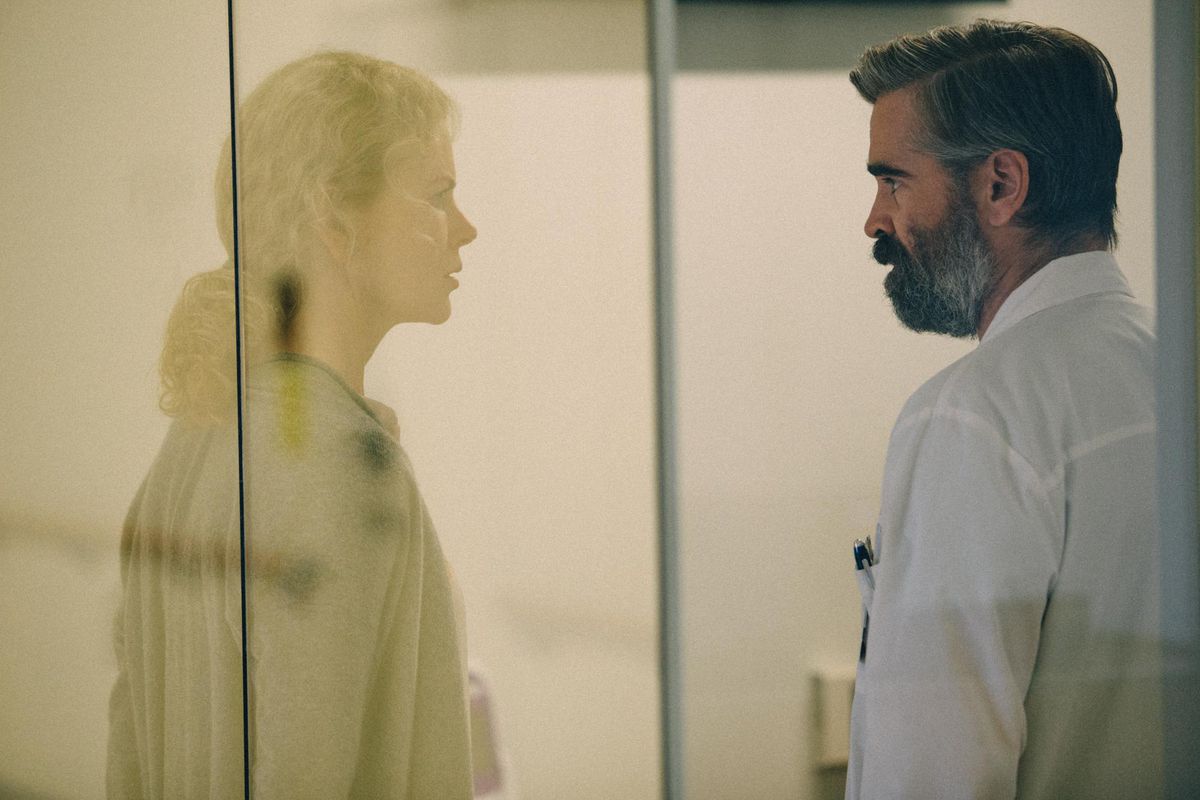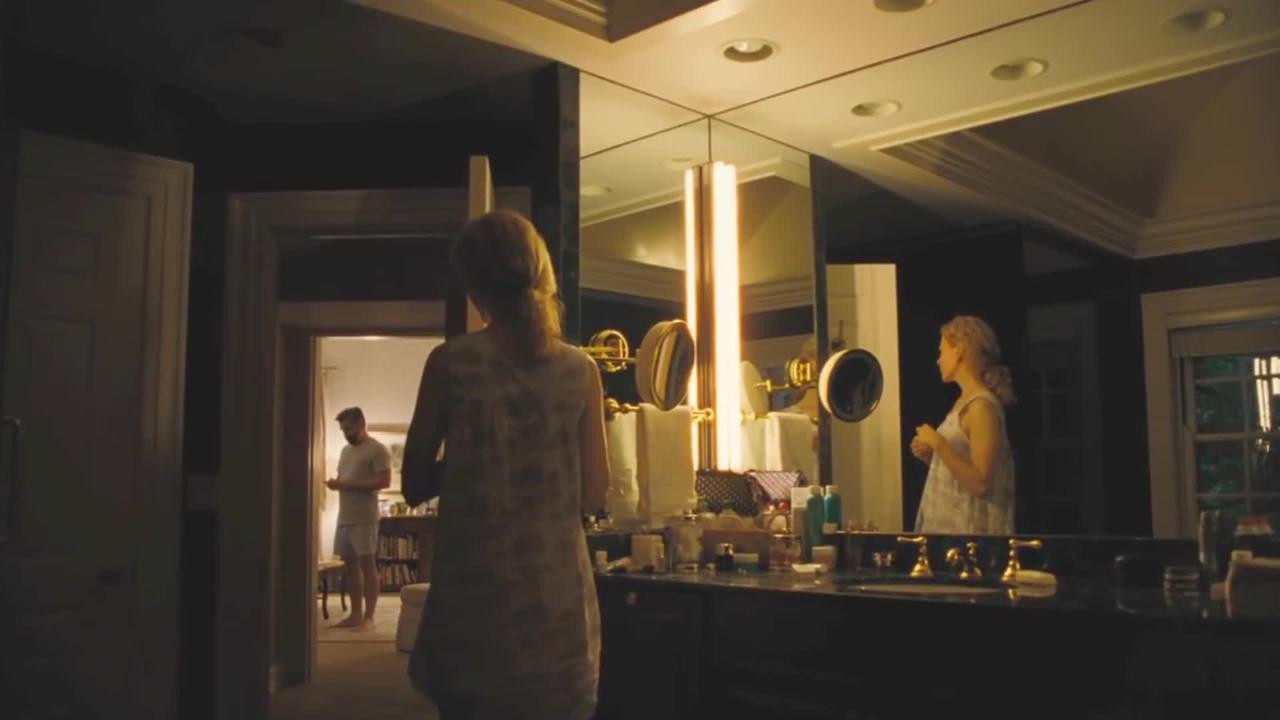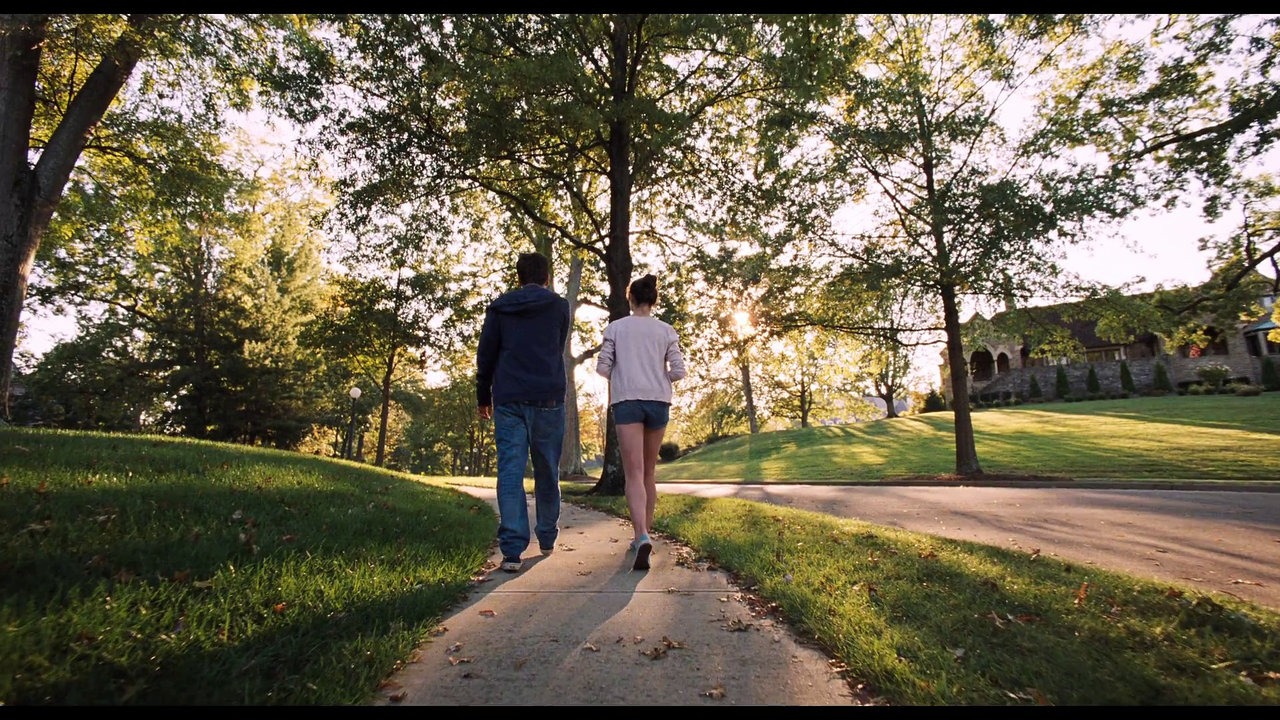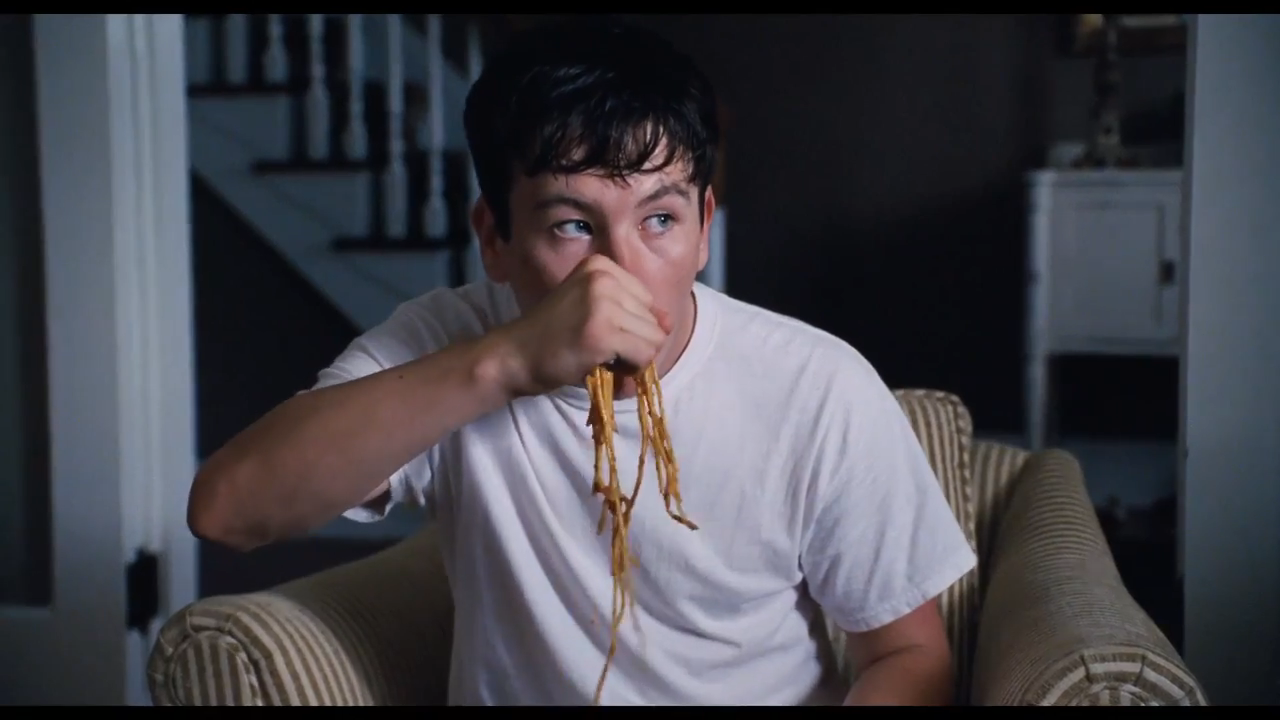It’s fundamentally irritating when someone is dead set on shocking you. Full of pride and vague malice, it’s a weirdly authoritarian impulse – a gesture of control that both insults you by assuming you’re a delicate flower who will wilt under the awesome power of the image, while simultaneously flattering itself by imagining the spectacle is so awesomely powerful in the first place. It’s a kid taking a shit on the kitchen floor during a dinner party, just to see what you’ll do. The Killing of a Sacred Deer is that kid, in movie form.
Of course, this is a Yorgos Lanthimos film, so the kid – smiling impishly, staring at you without blinking as he shits on the floor – is also impeccably dressed, and has much to recommend him otherwise. This incongruity, you can tell, thrills him; he really got you this time! You sigh, half-heartedly wag your finger, and get a mop, as he skips back into the main room to mischievously show your guests his genitals. What a rascal.
The Killing of a Sacred Deer is the latest entry in Lanthimos’ career-long foray into absurdist amorality tales, and his  weakest. Like his 2015 The Lobster, the similarly English-language and animal-centrically-titled Sacred Deer revels in treating its magical conceits as commonplace, right down to a Colin Farrell protagonist who speaks in clipped, distant monotone. But rather than that earlier, much better film’s purely imaginative locale – a resort of sorts, where uncoupled adults have to either pair up or accept being turned into an animal of their choosing – Sacred Deer takes place in the more-or-less real world, or at least Lanthimos’ approximation of it.
weakest. Like his 2015 The Lobster, the similarly English-language and animal-centrically-titled Sacred Deer revels in treating its magical conceits as commonplace, right down to a Colin Farrell protagonist who speaks in clipped, distant monotone. But rather than that earlier, much better film’s purely imaginative locale – a resort of sorts, where uncoupled adults have to either pair up or accept being turned into an animal of their choosing – Sacred Deer takes place in the more-or-less real world, or at least Lanthimos’ approximation of it.

Farrell is Steven Murphy, a cardiologist. Sacred Deer wants very much for us to know that Steven Murphy is a cardiologist. Not only does the film begin – uh oh, here comes that waggish kid again, naughty bits in hand! – with an agonizingly long close-up of a beating heart in surgery, but he also gives speeches about cardiology and nearly every character mentions it at some point.
It’s surprising the people Dr. Murphy passes on the street don’t say Lanthimos-esque things like, “Ah, hello Dr. Steven Murphy, the cardiologist. You work with hearts, I understand, because you are a cardiologist.” (Was the director gleefully waiting for scandalized critics to describe this film as “The Lobster with its heart excised”? This is perhaps a question for Steven Murphy, the cardiologist.)
In any case, the cardiologist Steven Murphy is patriarch to a picture-perfect bourgeois family, a set of blandly-named interchangeables co-habitating in their immaculate, stagey suburban house, a stock company as much as a domestic unit.
His wife Anna (Nicole Kidman, in full Eyes Wide Shut mode) is an ophthalmologist. (Eyes!) They have a very companionable rapport, a sort of contented boredom; their sex seems exclusively based on doctor role-play with her being fake-anesthetized, because of course it does. Their adolescent daughter Kim (Raffey Cassidy) sings in the school choir and, we are repeatedly informed, just got her first period. Their son Bob (Sunny Suljic) needs a haircut, but is otherwise acceptable. When he grows up, he wants to be either a cardiologist or an ophthalmologist.

In its earliest sequences, Sacred Deer seems squarely aimed at pitiless satire, and it’s amusing enough. Lanthimos and co-writer Efthymis Filippou provide the kind of meaningless, platitude-heavy dialog we associate with Ionesco, full of repetitions, formal phrasing, and a clipped, robotic edge, an unsettling vernacular that draws attention to itself.
The effect is distancing and theatrical – an anti-mimetic spin on daily routines. (Did you know that some people consider the illusion of self-satisfied domesticity kind of phony and shit, and consider the suburbs not a reprieve from a violent world but in fact an escapist fantasy space, a class construction in which man’s inhumanity to man is revealed in its most distilled form amid buried secrets and casual cruelty? It’s true!) More enfant terrible stuff, really, but it has promise for a while.
Lanthimos, you will be unsurprised to learn, hurls a bomb into this Garden of the Automatons, and that bomb is named Martin (Barry Keoghan). His name brings Romero’s understated classic to mind, which seems hardly an accident – like Romero’s suburban “vampire,” Sacred Deer’s Martin is polite but off. (As things develop, there will be more explicit similarities.) The pimply teenager is introduced obliquely; for reasons initially left vague, he seems to spend a lot of time with Steven, alone in diners or parking lots, and this relationship is kept hidden from Anna. The cardiologist gifts him money, an expensive watch. We suspect the worst.

The worst arrives, but not in the way it’s been teased, and with the power structure inverted. Martin is in charge here. His late father had been the doctor’s patient, and died on the operating table. What had earlier seemed either an unhealthily close paternal relationship or a possible abuse situation is revealed to be something else entirely. The grinning malevolence, barely disguised as winsome charm, that Keoghan had brought to earlier scenes manifests instead as a full-blown revenge plot. Someone is going to die.
Through powers we cannot divine and which Lanthimos is admirably disinterested in explaining, the Murphys go down one by one, stricken first by paralysis and eventually copious amounts of bleeding from the eyes. Martin hastily but matter-of-factly informs his cardiologist friend that the entire family will slowly be killed unless the patriarch chooses one to sacrifice himself. Thus, the scales of universal justice will be balanced – death for death, anguish for anguish. (Is this actually commensurate? No, Martin/Yorgos, it’s not, but never mind.)

From this point on, Sacred Deer grinds its way through the narrative motions, following the straight line it’s laid out. A relationship develops between Martin and the daughter, muddying motives. Family members start angling for preferential treatment, like inmates turning on each other on the way to the gallows. The whole apparatus, the veneer of respectability, falls away. Eventually, the film doesn’t so much “draw to a close” as stop.
But like the mirrors, windows, and glass dividers that Lanthimos-regular Thimios Bakatakis lingers on in gorgeous shot after gorgeous shot, nothing coheres beyond the surfaces. (The cinematography is the real star of Sacred Deer, incidentally; the nihilism may be cheap, but it never looks it.)
Lanthimos isn’t in the business of underlining the moral of the story, nor should he be, but this is a film with even less to clumsily say than it initially appears. A plot involving a blink-or-you-miss-her Alicia Silverstone as Martin’s horny mom is introduced and promptly jettisoned. It’s not even a formal triumph; the aesthetic hollowness can’t even get close to the narrative distancing. No one, and nothing, is worth caring about here.

What are we left with, then? An anti-humanist shrug, too distant to be affecting and too cute to be mean. Pretty pictures. A set of wasted performances. (Keoghan is particularly grotesque, and I’d worry about him getting typecast if Sacred Deer were to become a hit. He probably shouldn’t worry too much about that.) And, of course, Colin Farrell dispassionately telling his son about the time he jerked off his own passed-out dad when he was a kid to see how much sperm grown men produce.
Oh, my stars. Are you shocked? Don’t be. It’s just how Yorgos is, sometimes; he thinks he’s being clever. Go back to the party. We’ll clean this up.

